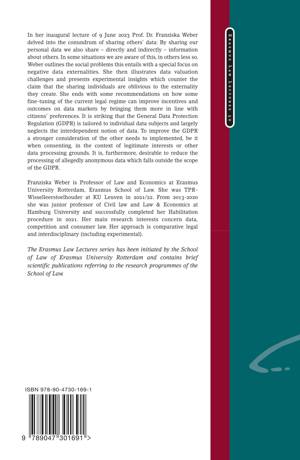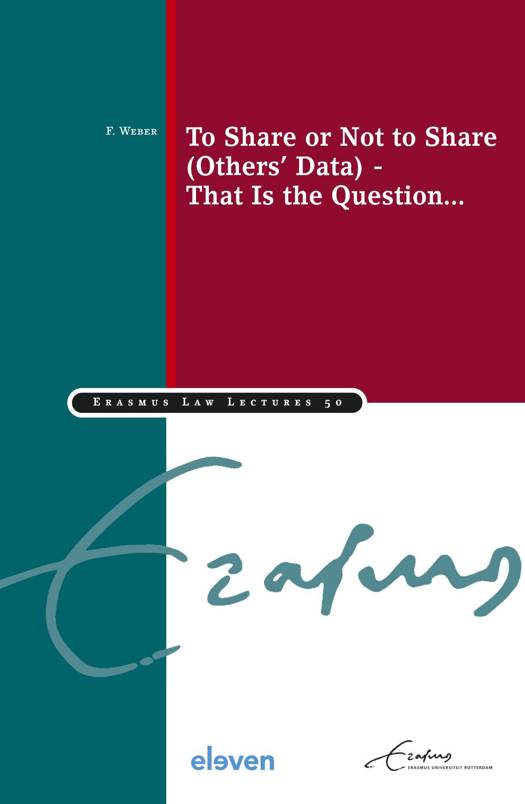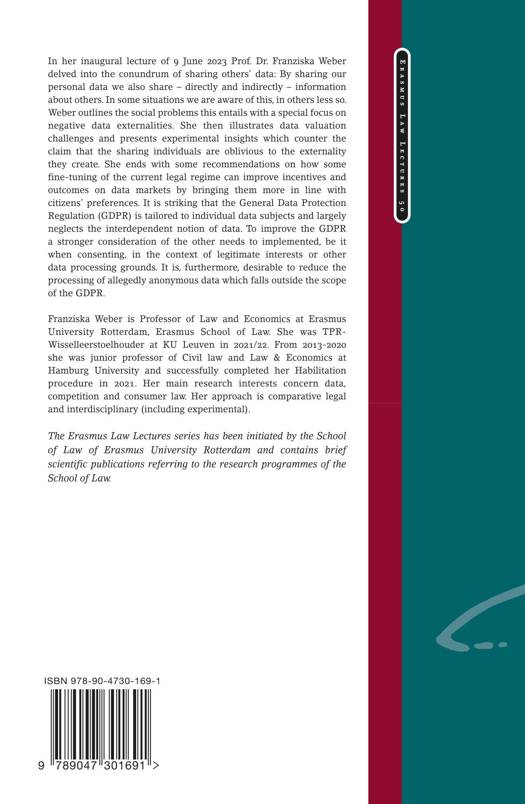
- Afhalen na 1 uur in een winkel met voorraad
- Gratis thuislevering in België vanaf € 30
- Ruim aanbod met 7 miljoen producten
- Afhalen na 1 uur in een winkel met voorraad
- Gratis thuislevering in België vanaf € 30
- Ruim aanbod met 7 miljoen producten
Zoeken


Omschrijving
In her inaugural lecture of 9 June 2023 Prof. Dr. Franziska Weber delved into the conundrum of sharing others' data: By sharing our personal data we also share - directly and indirectly - information about others. In some situations we are aware of this, in others less so. Weber outlines the social problems this entails with a special focus on negative data externalities. She then illustrates data valuation challenges and presents experimental insights which counter the claim that the sharing individuals are oblivious to the externality they create. She ends with some recommendations on how some fine-tuning of the current legal regime can improve incentives and outcomes on data markets by bringing them more in line with citizens' preferences. It is striking that the General Data Protection Regulation (GDPR) is tailored to individual data subjects and largely neglects the interdependent notion of data. To improve the GDPR a stronger consideration of the other needs to implemented, be it when consenting, in the context of legitimate interests or other data processing grounds. It is, furthermore, desirable to reduce the processing of allegedly anonymous data which falls outside the scope of the GDPR.
Specificaties
Betrokkenen
- Auteur(s):
- Uitgeverij:
Inhoud
- Aantal bladzijden:
- 35
- Taal:
- Engels
- Reeks:
Eigenschappen
- Productcode (EAN):
- 9789047301691
- Verschijningsdatum:
- 2/10/2023
- Uitvoering:
- Paperback
- Formaat:
- Trade paperback (VS)
- Afmetingen:
- 170 mm x 244 mm
- Gewicht:
- 77 g

Alleen bij Standaard Boekhandel
+ 85 punten op je klantenkaart van Standaard Boekhandel
Beoordelingen
We publiceren alleen reviews die voldoen aan de voorwaarden voor reviews. Bekijk onze voorwaarden voor reviews.












